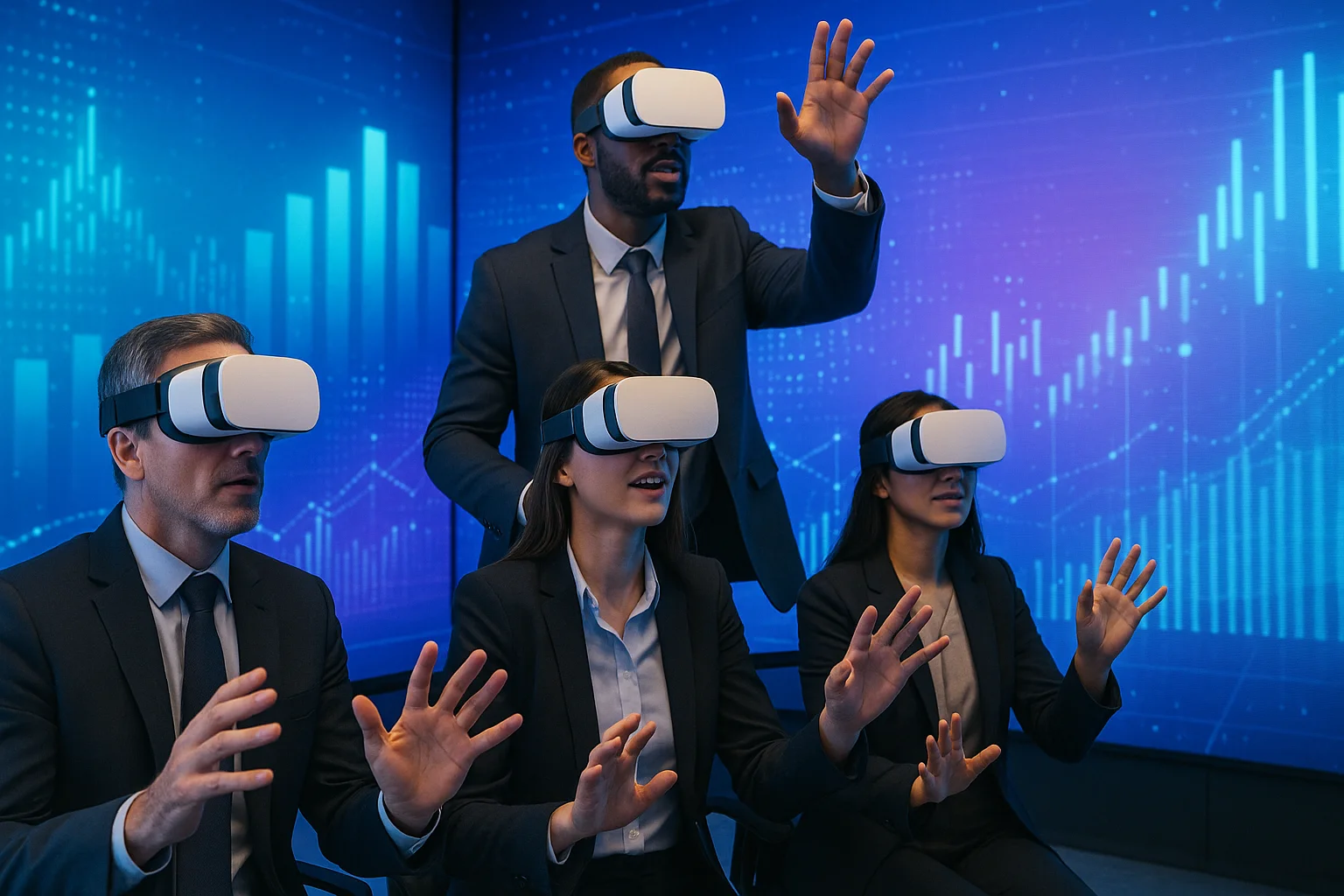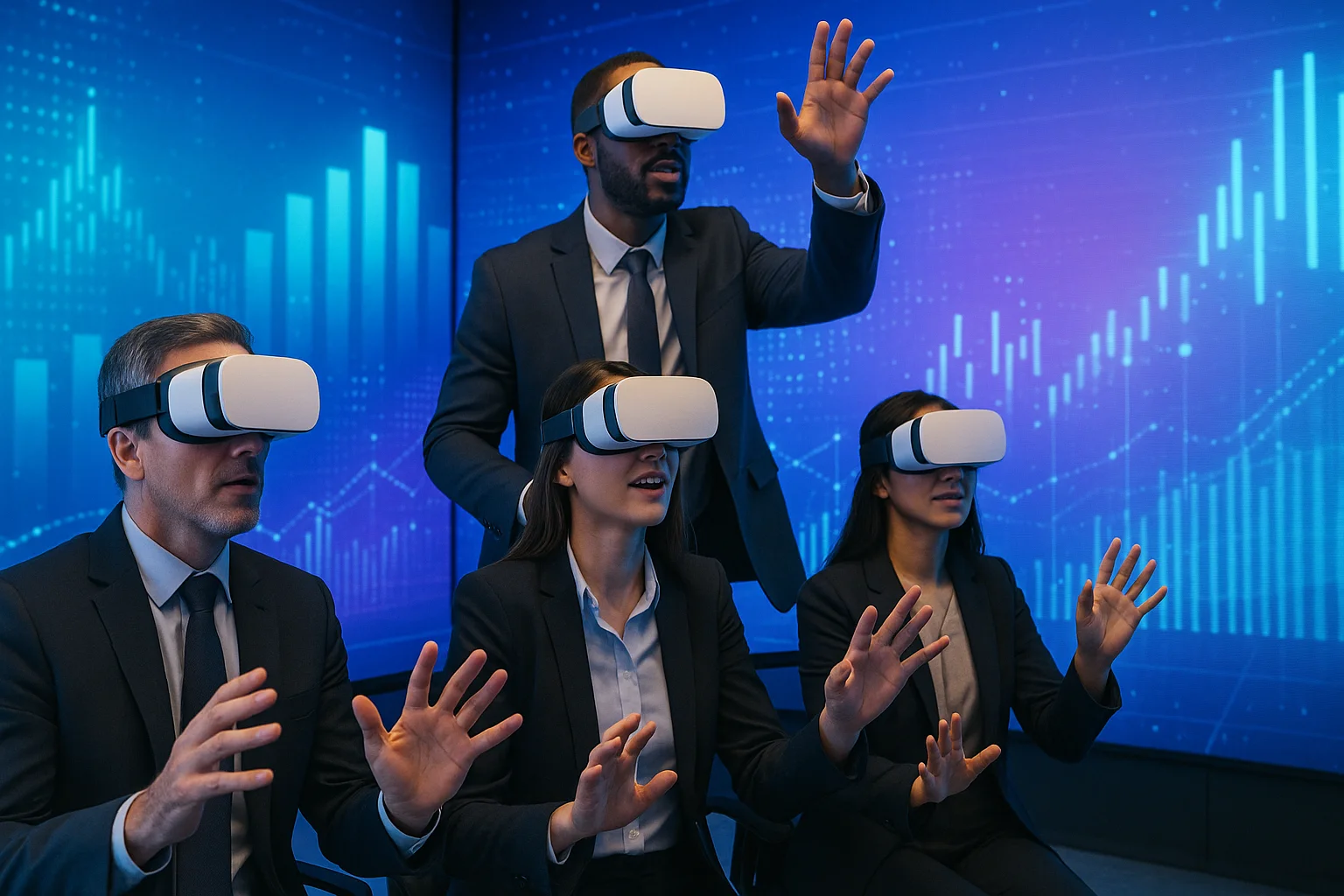2025-06-27 00:00:00


An immersive experience in corporate events involves engaging attendees in a multisensory narrative where technology, content, and emotions blend to create a vivid and lasting memory. These experiences go beyond typical conferences or booths, using tools like augmented reality (AR), virtual reality (VR), video mapping, surround sound, interactive spaces, and storytelling to create emotional impact and reinforce brand messaging.
Understanding the immersive experience meaning is essential when designing impactful corporate events. More than just an activity, an immersive experience means engaging participants in a multisensory narrative that merges technology, content, and emotions to create a vivid and lasting memory. These experiential events go far beyond standard conferences or booths by using tools like augmented reality (AR), virtual reality (VR), 360° projections, surround sound, interactive environments, and storytelling to strengthen the brand message emotionally.
So, what is an immersive experience in corporate settings? It's a fully engaging journey designed to connect deeply with attendees through sensory, technological, and cultural elements. The goal is not only to attend but to experience the essence of the event — from embracing the local identity to internalizing brand values emotionally and memorably.
In the age of emotional digitalization, immersive technology bridges content and experience. When used creatively, it amplifies impact and transforms experiential marketing strategies. Key tools include:
Virtual reality (VR): Simulates 3D environments or complex products for training, product launches, or high-impact presentations.
Augmented reality (AR): Enriches the physical space with interactive digital elements, enhancing real-time storytelling and branding.
360° projections and mapping: Turn architectural spaces into immersive storytelling canvases.
Olfactory and tactile systems: Engage the senses to craft memorable, authentic multisensory experiences.
Live gamification: Encourages active participation and collaborative learning aligned with the event’s goals.
Creating a successful immersive event takes more than creativity. It requires clear strategy, strong storytelling, and flawless technical execution. Partnering with a specialized agency or DMC (Destination Management Company) ensures the brand’s purpose connects with a meaningful, tech-enabled local experience. The key phases include:
Define clear goals: Every experiential marketing event must answer one key question—what do we want attendees to remember, feel, or do? A DMC translates these goals into actionable experiences.
Design a cohesive narrative: From welcome to farewell, the storyline must guide the entire event. Local culture, corporate storytelling, and consistent theming create emotional continuity.
Integrate purposeful technology: Tech must enhance—not distract from—the message. A DMC provides the tools and expertise to use AR, VR, or mapping meaningfully.
Measure the impact: Tools like engagement metrics, social media mentions, dwell time, and NPS help assess success. Agencies like CREA Group Events also deliver post-event reports, data collection, and qualitative analysis.
Immersive experiences, when backed by a DMC, not only capture attention but reshape how brands communicate and build relationships. Key advantages include:
Higher message retention through emotional and sensory integration
Stronger brand positioning linked to innovation and authenticity
Increased engagement and networking opportunities
Enhanced internal perception, boosting corporate culture and team motivation
These events are strategic tools for HR, marketing, and communications, especially when executed with precision.
Immersive experiences vary based on business goals, audience profile, and destination. Each is designed to connect participants with the brand through culture, place, and technology. Top formats include:
Thematic sensory experiences: Blend visuals, sound, textures, and tastes. An immersive experience in Barcelona, for example, could be a guided tasting in a modernist venue with synchronized lighting and live music.
Interactive cultural tours: Combine historic locations with tech or artistic interventions—like a theatrical night walk in Madrid’s historic district enhanced with AR recreations.
Creative experiential workshops: Perfect for team building and innovation. In Seville, a corporate group might enjoy a hands-on flamenco percussion and culinary workshop in an Andalusian courtyard.
Immersive theater formats: Transform the event into a participatory performance, tackling themes like diversity or urban art through guided storytelling.
Corporate journeys with narrative integration: Turn travel itself into an experience, where attendees unlock story clues via QR codes or mobile devices during train or bus rides.
Whether rooted in cultural depth or driven by tech on a rooftop, the objective remains: create authentic, emotional connections with your audience.
An immersive experience is a fully engaging format using sensory stimuli, tech, narrative, and space design to connect with participants emotionally. Its goal is to reinforce corporate messages and values in a memorable, participatory way.
Barcelona blends culture, innovation, and stunning venues. Designing immersive experiences in Barcelona lets brands leverage iconic locations, local talent, and advanced technology for unforgettable experiential events tailored to each audience.
A DMC like CREA Group Events brings local expertise, vetted suppliers, and strategic design. This ensures operational efficiency, cohesive storytelling, and full personalization in destinations like Madrid, Málaga, Seville, or Valencia.
